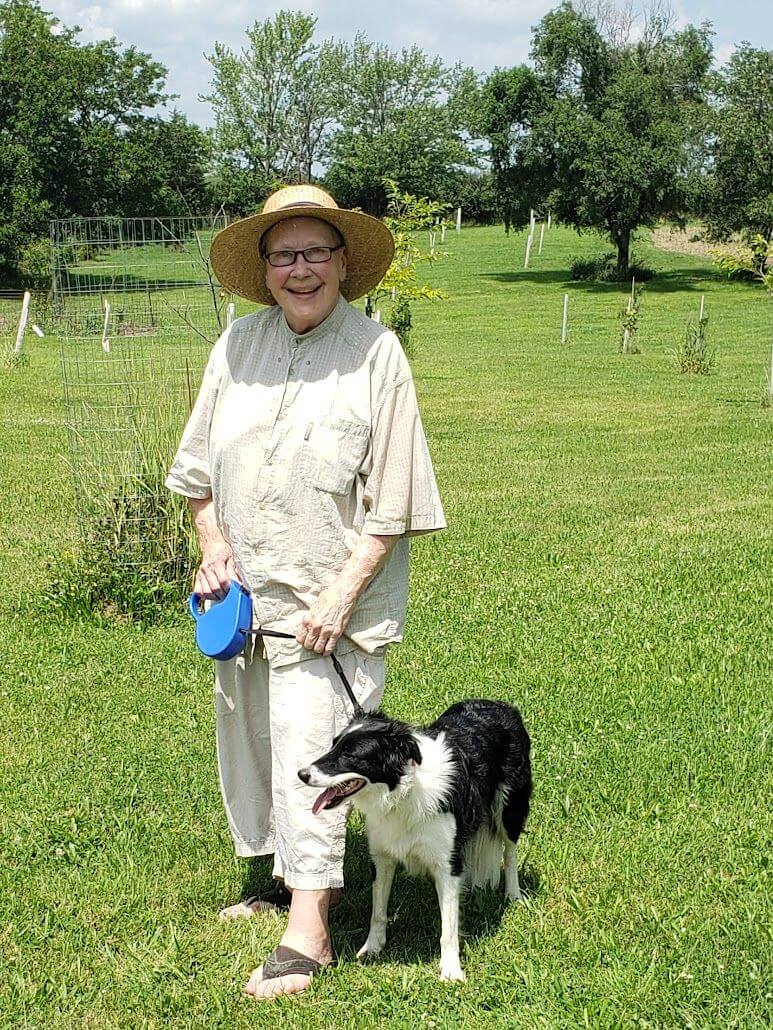Celebrating our 10th anniversary, we’re highlighting the dedicated board members who have shaped SILT’s mission. Today, we feature Mary Ellen Miller, whose deep roots in Iowa agriculture and decades of nonprofit leadership continue to guide our organization.
Mary Ellen Miller’s connection to Iowa soil runs deeper than most—her familial history in the state runs back seven generations. Modeled by her father’s farming philosophies that were practiced outside Kalona in the 1940s and 50s, early on she learned a principle that still guides her today: we can never own the land; we are temporary stewards.
This philosophy took root early. Mary Ellen recalls spring mornings when her father would scoop up dirt for her to smell and taste.
“That tells you whether the soil is healthy enough and ‘ripe enough’ for planting,” he would say. These formative experiences are why she is so deeply connected to the land today.
Her family’s self-sufficient lifestyle included growing their own food; raising and processing pigs, chickens, and other livestock, milking cows, and making butter. They sold cream and eggs to local restaurants, and embodied the local food systems that SILT champions today.
Mary Ellen also witnessed the tension between agricultural progress and environmental preservation. She remembers standing knee-deep in Missouri wetlands while her grandfather dredged them for farming. Later, she learned about wetlands’ crucial role in flood prevention along rivers.
“Early on, I was privy to what we have done to change the landscape in the interest of farming,” she reflects.
Mary Ellen has had a lifetime of nonprofit service. She joined her first board at 17 years old after graduating high school, and has served on various boards for 60 years. Her service delivers invaluable nonprofit experience and knowledge to SILT. When a long-time friend and former state senator was approached by SILT’s founder, she pointed her directly to Mary Ellen Miller—setting in motion a connection that would shape our future.
Though initially too busy running her own nonprofit to join SILT’s board, she soon became a member in the organization’s second year. Now, as SILT celebrates its tenth anniversary, Mary Ellen represents continuity and wisdom earned through decades of nonprofit governance.
Her current farm exemplifies her commitment to sustainable agriculture. Although she describes her land as having poor soil and limited water access, she is developing it as a perennial food farm focused on trees, crops like rhubarb and asparagus, and windbreaks that future farmers could utilize if they wish to install a greenhouse or high tunnel. She was also the first individual to permanently protect her property with SILT ten years ago.
Mary Ellen sees local food systems as an unstoppable movement. “I think this is a movement that’s not going to go away. It’s going to grow slowly, but it’s not going away.” She connects this to health outcomes, noting the relationship between cancer rates and food quality in our food system. She adds that she always recommends folks read the books “The River Knows: How Water and Land Can Shape our Future” By Neil Hamilton and “Swine Republic” by Chris Jones.
Her vision for Iowa’s future includes expanded mentorship programs, particularly for women entering farming, and continued advocacy for federal policies supporting sustainable agriculture. As she puts it, “It all fits together like a big jigsaw puzzle, and I see SILT as an organization that is ripe for the time.”
SILT is grateful for Mary Ellen’s decades of service and her unwavering commitment to sustainable agriculture in Iowa.

